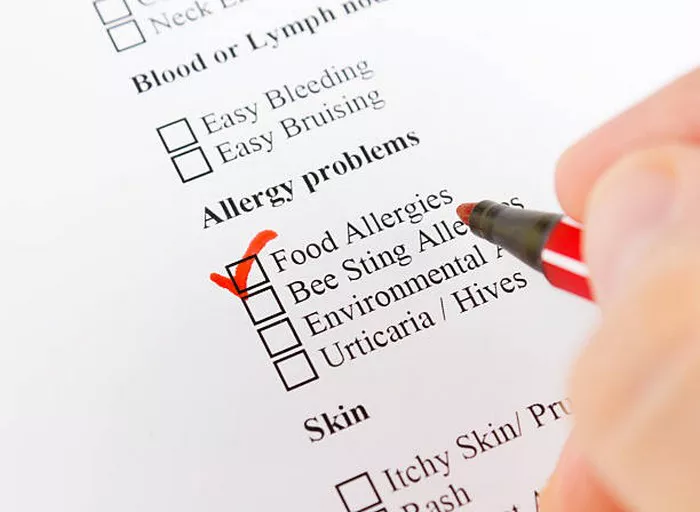Allergies are a common immune response that can significantly impact an individual’s quality of life. From mild skin irritations to severe anaphylactic reactions, allergies can manifest in various forms and severity. While avoiding trigger foods is crucial for managing allergies, incorporating certain foods into your diet can also help alleviate allergic symptoms. In this article, we will explore foods that have been shown to be beneficial for allergies, their mechanisms of action, and practical tips for incorporating them into your diet.
Honey: A Natural Antihistamine
Honey is a sweet and natural remedy for allergies. Its anti-allergic properties stem from the pollen collected by bees during the nectar-gathering process. Consuming a small amount of local, unprocessed honey daily can help desensitize your immune system to local pollen, thereby reducing allergy symptoms. By ingesting minute amounts of pollen, your body gradually adapts, making it less likely to overreact when exposed to larger quantities.
To maximize its benefits, mix one spoonful of honey into a cup of warm water and drink it on an empty stomach each morning. Choose honey produced locally to enhance its effectiveness against local pollen allergens. However, be cautious with honey if you have a known allergy to bees or pollen.
Ginger and Honey Tea: A Soothing Combination
Ginger boasts anti-inflammatory and anti-allergenic properties, while honey adds an antibacterial touch. Combining these two ingredients in a tea can provide relief from allergy symptoms, particularly nasal congestion and cough.
Prepare ginger-honey tea by slicing fresh ginger root and steeping it in hot water. After a few minutes, add a spoonful of honey and stir well. Drink this tea one to two times daily for optimal results. You can also add a slice of lemon for additional flavor and vitamin C, which boosts your immune system.
Omega-3 Fatty Acids: A Powerful Anti-Inflammatory
Fish oil, rich in omega-3 fatty acids, has been proven to alleviate allergy symptoms. Omega-3 fatty acids reduce inflammation in the body, making them effective against allergic reactions. Incorporate fatty fish like salmon and cod into your diet, or opt for plant-based sources such as flaxseeds and walnuts.
You can prepare omega-3-rich meals by grilling salmon or cod fillets and serving them with a side of steamed vegetables and a sprinkle of flaxseeds. For a vegetarian option, mix flaxseeds and walnuts into your salad or oatmeal.
Low-Allergen Foods: Nurturing Your Body
Certain foods are less likely to trigger allergic reactions and can provide essential nutrients to support your immune system. These include bananas, blueberries, leafy greens, pumpkins, and codfish. These foods are rich in antioxidants, vitamins, and minerals, which can help soothe allergic reactions and strengthen your skin’s defenses.
A balanced diet incorporating these low-allergen foods ensures that your body receives a wide range of nutrients, reducing your dependency on specific, potentially allergenic foods. For example, a meal of grilled cod, steamed broccoli, and a side of mashed pumpkin provides a mix of protein, fiber, vitamins, and minerals, all contributing to overall health.
Antioxidant-Rich Foods: Skin’s Best Friend
Antioxidants play a crucial role in reducing oxidative stress on the skin, thereby enhancing its immunity against allergic reactions. Foods high in antioxidants include oranges, strawberries, carrots, and spinach.
Incorporate these foods into your daily diet by having a mixed fruit salad for breakfast, adding carrots and spinach to your smoothies, or enjoying a glass of freshly squeezed orange juice. These antioxidants not only protect your skin but also support your overall immune function, making you less susceptible to allergic triggers.
Probiotics and Prebiotics: A Gut-Healthy Duo
Maintaining a healthy gut flora is vital for reducing allergic reactions. Probiotics and prebiotics work together to balance your intestinal bacteria, thereby lowering inflammation and enhancing your immune response.
Probiotic-rich foods include yogurt, kefir, and fermented vegetables like sauerkraut. Prebiotic foods include oats, onions, garlic, and bananas. By consuming these foods regularly, you can improve your gut health, which in turn can alleviate allergic symptoms.
For example, start your day with a bowl of oatmeal topped with sliced bananas and a dollop of yogurt. For lunch, enjoy a salad with a probiotic dressing made from fermented vegetables. Dinner could be a serving of grilled chicken with a side of sauerkraut and roasted garlic.
Practical Tips for an Allergy-Friendly Diet
Keep a Food Diary: Record what you eat and any allergic reactions you experience. This will help you identify trigger foods and make informed dietary choices.
Read Food Labels: Always check the ingredient list before purchasing food items. Avoid products containing known allergens.
Cook at Home: Preparing meals at home allows you to control the ingredients, reducing the risk of accidental exposure to allergens.
Consult a Professional: If you suspect a food allergy, consult an allergist for proper testing and advice. They can guide you on safe food choices and necessary precautions.
Educate Yourself and Others: Understand the nature of your allergies and communicate them to family members, friends, and caregivers. This ensures that they can help you avoid allergens and provide timely assistance during allergic reactions.
Conclusion
Incorporating specific foods into your diet can significantly alleviate allergic symptoms. From natural remedies like honey and ginger to nutrient-rich options like omega-3 fatty acids and antioxidants, there are many ways to support your body in managing allergies. By making informed dietary choices, you can reduce inflammation, strengthen your immune system, and improve your overall quality of life. Remember, the key is to listen to your body, educate yourself about your allergies, and take proactive steps to manage them effectively.
Related Topics:

